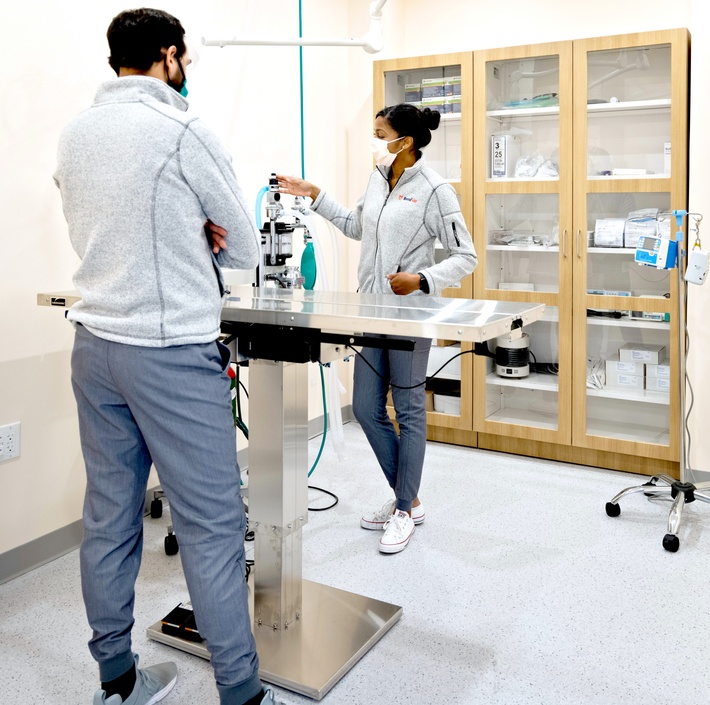
Interested in learning more about pricing?
Click below to get a quote today!
Our facilities
Each of our clinics has a dedicated surgery room complete with state-of-the-art equipment. Our surgical team uses the latest technology, time-tested and cutting-edge diagnostics to provide our furry patients with the best care possible.

Meet Our Surgery Team
Surgery at Bond Vet is led by our Director of Surgery, Dr. Renee McDougall.
Dr. McDougall has a special interest in orthopedic and minimally invasive surgery and a passion for using research and teaching to improve population health. With these tools she believes we can build a healthier community with less need for surgeons like her.
Doctors: To refer a client to the Bond Vet Specialty Surgery team, please fill out this form, and we’ll get in touch.
Gastrointestinal surgery is an umbrella term for any type of surgery of the stomach or intestines, and sometimes including other surgeries on abdominal structures such as the liver or spleen.
There are many different reasons why a pet may need gastrointestinal surgery. Some of the most common examples that we care for at Bond Vet include emergency and preventative gastropexy (to treat gastric torsion), gastrotomy (to remove foreign objects from the stomach), hernia repair (to push intestines back into place), intestinal biopsies (to diagnose gastrointestinal problems), and more.
Urogenital surgery refers to any surgery performed on the urinary tract (most commonly, the urinary bladder or urethra) or the reproductive organs, including penis, testicles, vagina, ovaries, and uterus.
Some of the urogenital surgeries we perform at Bond Vet include: PU surgery (to create a new hole for a pet to urinate from), urethropexy (to correct urethral prolapse), cystotomy (to remove bladder stones or bladder mass), spays and neuters (to prevent breeding), anal sacculectomy (to remove anal glands), and more.
Procedures vary, but know that your pet is in good hands at Bond Vet.
Masses are a common condition in pets, and generally more common in dogs than in cats. They can grow on, in, or just under the skin. Ranging in size from a couple of millimeters to football-sized, masses can represent a wide variety of conditions from simple skin tags, to large fatty growths, to scars, to malignant cancers.
If you notice a mass on your pet, visit us for diagnostics. Our vets will likely start with a fine needle aspirate, or FNA, to extract and then examine cells from the mass.
An aural hematoma is a blood-filled pocket that develops under the skin and cartilage of the pinna (ear flap). It’s common in dogs with chronic ear infections, and occasionally happens in cats, too. The condition occurs when trauma or an injury to the ear flap causes the small blood vessels inside the pinna to break and leak internally, resulting in a blood-filled swelling.
Surgery involves draining the blood pocket and then stitching the ear back up in a way that prevents the pocket from filling up again.
Conveniently Located
Find your nearest Bond Vet location.